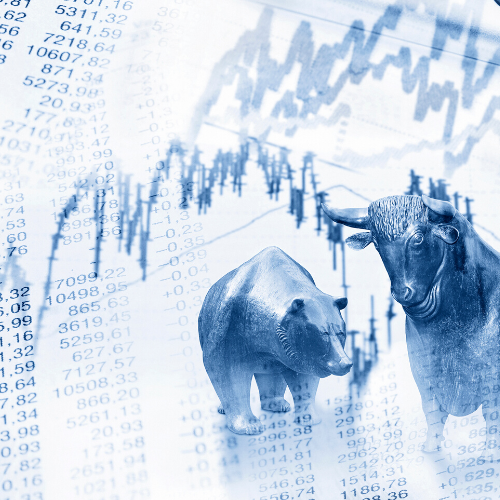Last updated: May 19 2021
Asset Management: How are Stock Dispositions Taxed?

Evelyn Jacks
The stock market has been hot this year, and some investors have been cashing in. Dispositions in non-registered accounts will be taxable and in the case of securities, that can be complex. Advisors who can illustrate the tax consequences with simple examples will add much-appreciated value. In this first of a series on capital gains and losses, we provide illustrations to assist in conversations, excerpted from the new Advanced Retirement and Estate Planning Course.
Buying a Block of Shares. The simplest transaction for stocks is when the investor buys a block of shares and later sells the same block of shares. The cost is the amount paid for the stock plus brokerage fees. This is known as the Adjusted Cost Base (ACB). The Proceeds of Disposition are the amount the shares are sold for and the Outlays and Expenses are the brokerage fees on sale.
|
CASE STUDY: Purchase and Sale of Block of Shares |
|
Sandeep purchased 1,000 shares of ABC Corp for $25.00 per share and paid a brokerage fee of $75.00 on the purchase. Some time later, those shares were sold for $28.00 per share and another $75.00 in brokerage fees was paid. In this case, the relevant numbers are: Adjusted Cost Base (ACB) = 1,000 shares x $25.00 per share + $75.00 = $25,075 Proceeds of Disposition = 1,000 shares x $28.00 per share = $28,000 Outlays and Expenses = $75 Capital Gain = $28,000 - $25,075 - $75 = $2,850 (50% added to income) |
Part of Block is Sold. If only part of the block of shares is sold, it is necessary to first determine the ACB of the shares that are sold in order to determine the capital gain on sale.
|
CASE STUDY: Sale of Portion of Shares Owned |
|
In the example above, assume only 500 of the shares are sold. In this case, the relevant numbers are: ACB of all shares = 1.000 shares x $25.00 per share + $75.00 = $25,075 Since only 500 of the 1,000 shares were sold: ACB = $25,075 x 500/1,000 = $12,537.50 Proceeds of Disposition = 500 shares x $28.00 per share = $14,000.00 Outlays and Expenses = $ 75.00 Capital Gain = $14,000 - $12,537.50 - $75 = $ 1,387.50 The ACB of the remaining shares is $25,075 = $12,537.50 = $12,537.50. |
Multiple Purchases, Same Shares. If the investor had purchased the same shares multiple times, the ACB of the shareholding increases with each purchase. When this happens and the investor later sells some of the shares, it is tempting to minimize the capital gain by claiming that the more expensive shares are sold first.
You guessed it – that’s frowned upon! The Income Tax Act, considers all of the shares to be identical property. That is, since you can’t tell one share from another, when a portion of the shareholding is sold, the cost of the shares sold is the average of the costs of the shares held.
|
CASE STUDY: Sale of Shares after Multiple Purchases |
|
Continuing with the prior example: After the sale, the taxpayer owns 500 shares with a cost base of $12,537.50. Later, another 1,000 shares of ABC Corp are purchased for $20 per share with a brokerage free of $75 for total ownership of 1,500 shares. Here’s is how the cost of the shares is calculated. ACB of all shares = 1,000 shares x $20.00 per share + $75.00 + $12,537.50 = $32,612.50. Later 500 of the ABC Corp shares are sold for $25.00 per share. ACB = Since only 500 of the 1,500 shares are sold, the ACB of the shares sold is calculated as follows: $32,612.50 x 500/1,500 = $10,870.33 Proceeds of Disposition = 500 shares x $25.00 per share = $12,500 Outlays and Expenses = $ 75 Capital Gain = $12,500 - $10,870.33 - $75 = $1,554.67 The adjusted cost base of the remaining shares is $32,612.50 - $10,870.33 = $21,742.17 |
Stock Splits and Consolidations. Sometimes stocks will “split,” which means that the investor now holds more shares than they purchased, or the shares may “consolidate,” which means that the investor now owns fewer shares than before the consolidation.
Since there is no additional outlay and no proceeds from a stock split or consolidation, the ACB of the shares held remains the same although the number of shares held changes.
Additional Educational Resources: Sign up for the New Advanced Retirement and Estate Planning Course from Knowledge Bureau, which comes with the recorded sessions from the May 20 CE Summits. You’ll hear expert instructors explain key concepts and have access to the whole online course, which qualifies as one full course credit in a Knowledge Bureau MFA designation program.
Long weekend special: Enrol in the Retirement and Estate Planning Course for only $695 (save $200) until May 25. Includes EverGreen Explanatory Notes and instructor support.
